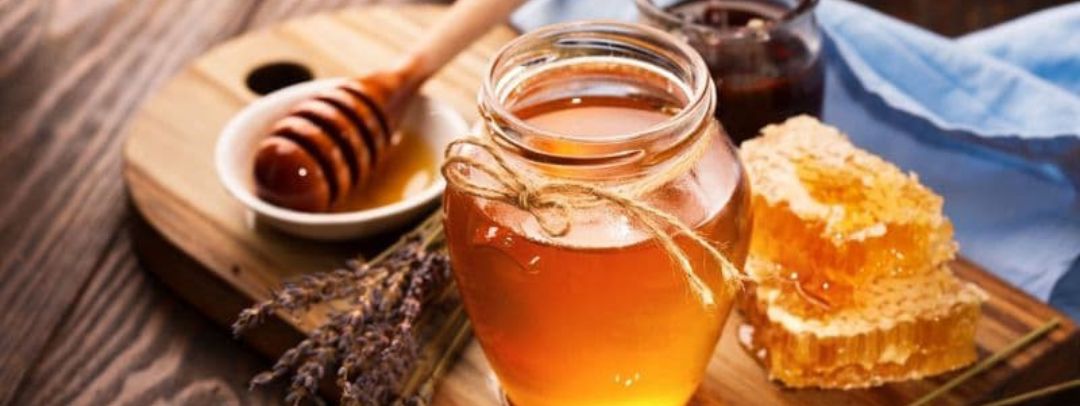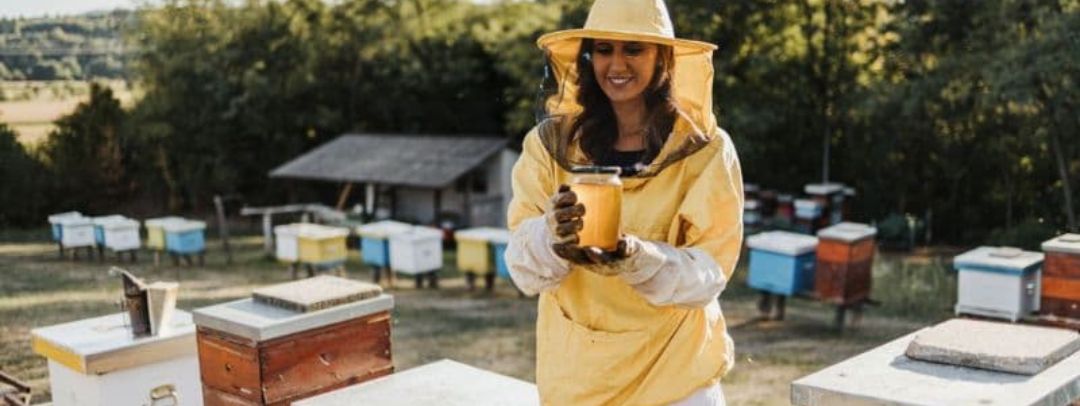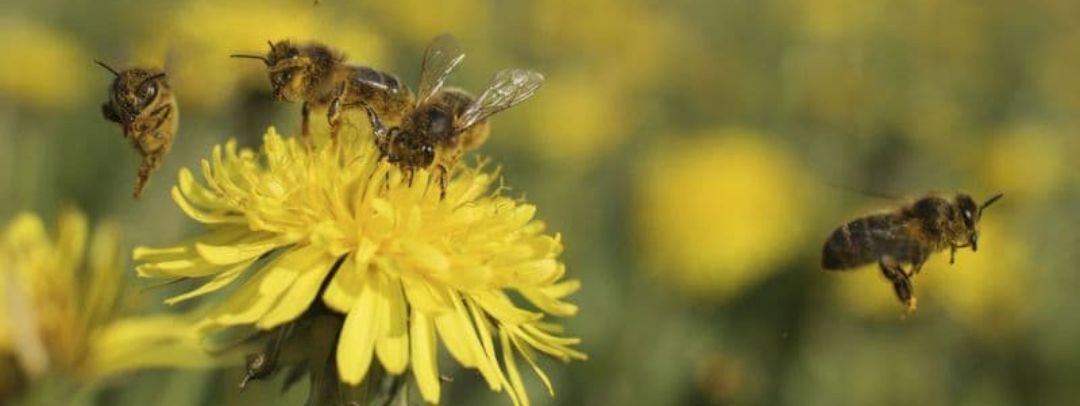Do bees suffer a lot in summer, and is honey affected by high temperatures? The truth is that when summer arrives and the sun is high, bees suffer, as the high temperatures are a problem for them.
Bees are also affected by the heat, so beekeepers use measures to keep them healthy during the months when temperatures are high.
As far as honey is concerned, the high temperatures that can occur in the hive do not influence or damage the quality of the honey obtained. In this case, it is the bees that suffer most from the heat in summer.
Table of contents

Bees in summer and special care
Bees, like any other living creature, have an optimum temperature at which they do best. If they are too much above or below the average, their survival is threatened, which can negatively affect the species.
Therefore, beekeepers have the responsibility to place the hives in shaded areas to prevent the hives from being too hot. In most cases, the tree is a great resource, and is used as a shelter for the hives.
Hydration of the bees is also very important, as the supply of water is essential, as with such high temperatures, the bees would not be able to survive.

Curiosities of bees in summer
Bees don’t find it easy to beat the heat either. How do they do it? Quite simply, the bees collect drops of water and bring them back to the hive. In this way, the water is converted into a gaseous state and the temperature is lowered.
Ventilation of the hive and heat
Although it may vary according to the species, it is certain that the brood nests of the hives should be kept at an average temperature of between 34º and 38º. The same applies to humidity, which is normally around 80% inside the hive.
Bees have incredible temperature sensors: their antennae. Thus, when the bees notice an increase in temperature, they go outside the hive and start to move their wings to ventilate it. Thus, in times of intense heat, the bees can spend a whole night ventilating the hive.
Cooling the hive is essential to ensure the survival of the colony, which may be lost if they fail to do so.
A hive exposed to the sun in hot, poorly ventilated areas cannot function normally, and the bees will eventually become very stressed and weak.
Lack of water in the hive due to the heat
Water is essential to ensure the survival of the bees, especially in times of excessive heat. It is essential for survival.
As mentioned above, thanks to their antennae, the bees notice the rise in temperature inside the hive. Faced with this rise, the bees go outside and collect drops of water which they then deposit inside the hive, thus lowering the temperature.
However, when this is not enough to lower the temperature, the bees go outdoors and move to the shade under the hive, thus reducing the number of individuals inside the hive and lowering the temperature.

Decreased fertility of the queen bee
The optimum temperature for queen bee reproduction is between 15° and 38°C. The higher the temperature, the less likely the spermatozoa of the drone bees are to reproduce. The higher the temperature, the less likely the spermatozoa of the drones are to reproduce. For this reason, it seems that climate change may seriously affect bee breeding.
Bees are the ones who suffer the most from the heat with the high temperatures in summer, but does honey also suffer, does it lose its flavour, and how can we prevent it from losing its properties and benefits?
Tips to take care of honey in summer
Here are a series of tips that can help you to preserve honey in the best possible way, thus preventing it from losing its incredible properties
Store it at the right temperature.
Honey should not be refrigerated, nor should it be stored near a cooker or refrigerator, as it could suffer different temperature changes, which affect the quality of the honey. Above all, the honey should not be exposed to direct sunlight.

Honey at home and the bees.
Temperature changes can be very harmful to honey, altering its colour, texture and flavour. If the ambient temperature is high, try to leave the honey in a shaded place that is not closed.
It is important to store honey properly, so storing it in an air-conditioned area of the house may be the best option.
Honey should not lose its flavour
It is important that oxygen only touches it when you are going to use it, otherwise its flavour will lose its potency.
Honey is a food that has very beneficial properties and is a completely natural product. It is very good, its composition speaks for itself, composed of:
- Minerals
- Sodium
- Potassium
- Magnesium
- Calcium
- Iron
- Manganese
- Copper
- Phosphorus
- Zinc
- Selenium
- Vitamins A, C and B complex vitamins
If honey is part of your diet, we are sure that you already know many of its properties and that it is essential to preserve it well, especially at high temperatures.
You might also be interested in:



